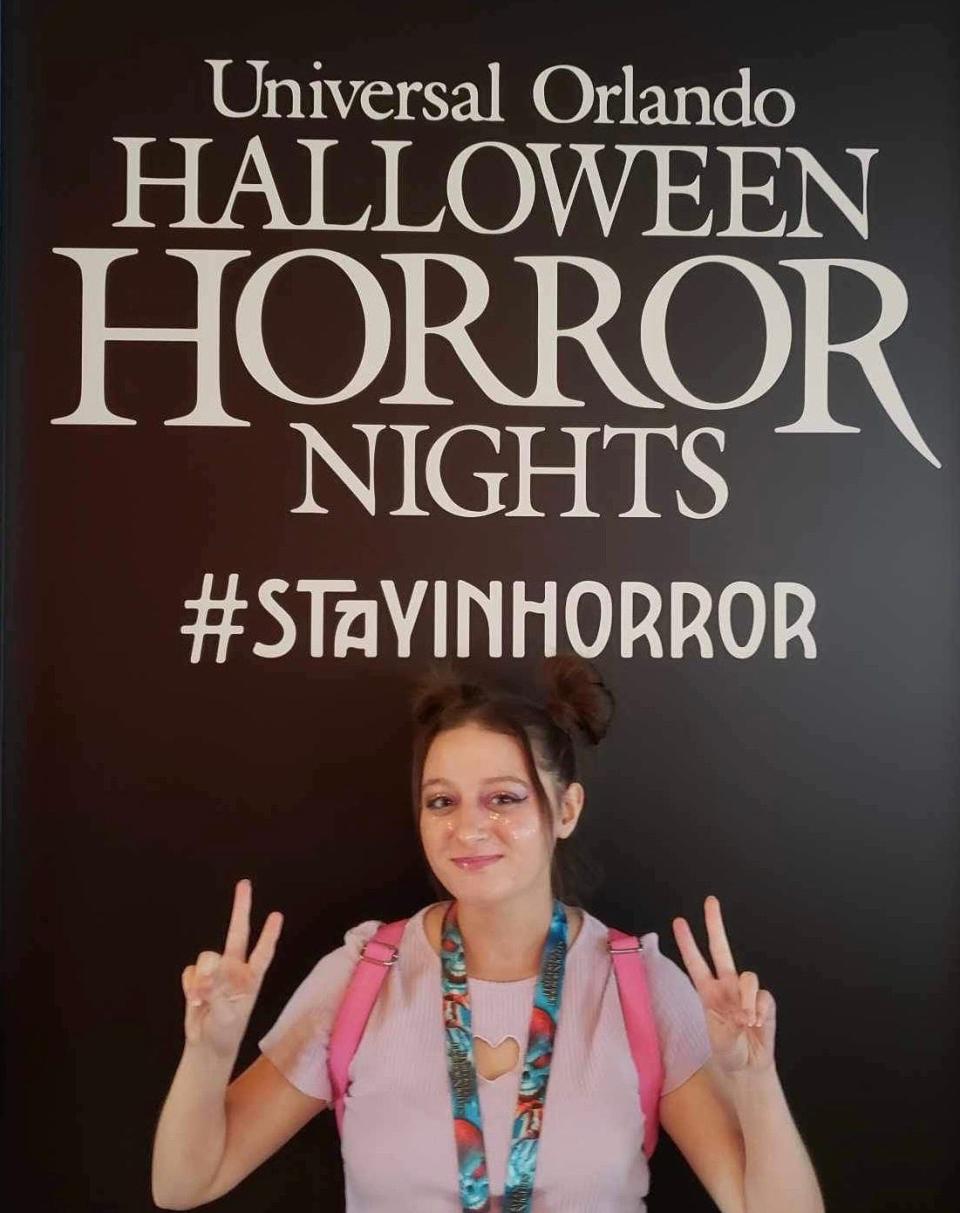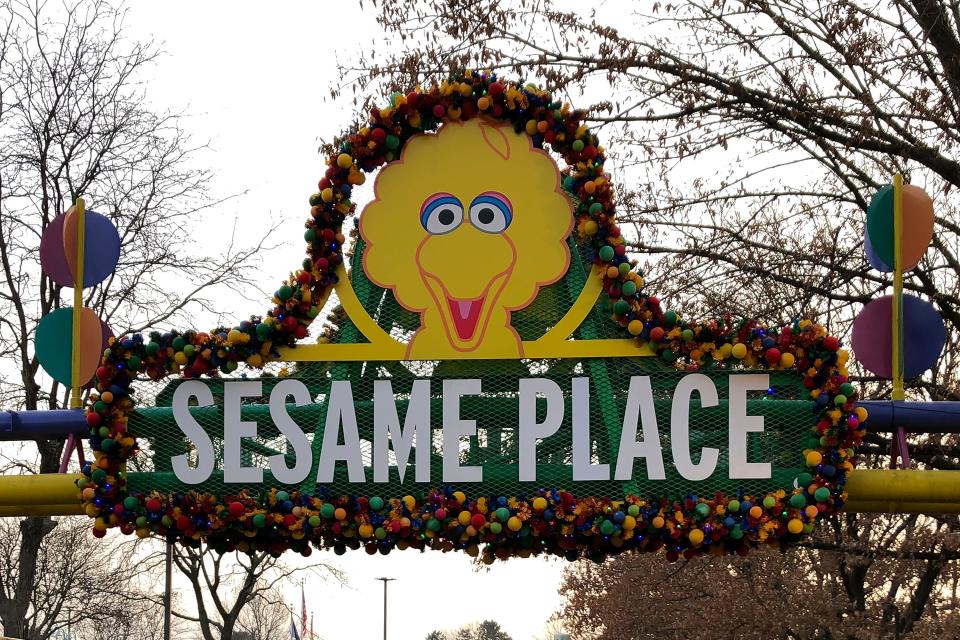Travelers with disabilities need this card for accommodations at some theme parks
You’ve bought your tickets and packed your sunscreen, but there’s something travelers with disabilities now need at a growing number of theme parks: a card verifying their need for accommodations.
Over the summer, Universal Orlando Resort and Universal Studios Hollywood joined the list of destinations requiring an Accessibility Card from the International Board of Credentialing and Continuing Education Standards (IBCCES).
“The online pre-arrival registration has been established to ensure guests who need an accommodation are taken care of quickly and easily on arrival at our parks, allowing them to get to the fun faster,” a spokesperson for Universal Destinations and Experiences told USA TODAY. “We strive to make sure that every Universal guest has an incredible experience and continue our commitment to make our theme parks more accessible.”
Here’s what travelers with disabilities and other access needs should know:
What is the IBCCES Accessibility Card (IAC)?
IBCCES, the training and certification organization behind certified autism centers and other accessibility-related programs, told USA TODAY the card was created to help streamline accommodations processes at theme parks and other attractions. It was developed with input from IBCCES’ advisory board, which includes disabled self-advocates, and based on feedback from destinations and guests.
“By offering a digital platform that is meant to be accessed and completed prior to the onsite visit to parks, we aimed to empower staff at attractions to better (and more quickly) serve guests requiring additional support on-site, as well as ease the process for guests who need accommodations but are eager to enjoy their time at the park,” IBCCES said.
Who is eligible for IBCCES Accessibility Card?
Guests with a variety of accommodation needs are eligible for the IBCCES Accessibility Card. It’s not just for rides.
They can range from dietary needs to sensory sensitivity to visual assistance and wheelchair access.
Story continues below.

Which amusement parks, theme parks require the card?
Six Flags parks across the country have used the cards for three years. Other parks that participate in the program include Sesame Place Philadelphia and America’s largest free-admission amusement park, Knoebels.
A list of participating parks is available here.
“The introduction of the International Board of Credentialing and Continuing Education Standards program enhances our Ride Accessibility Program to provide greater efficiencies and ease for guests,” Cathy Valeriano, president of Sesame Place Philadelphia, said in a statement to USA TODAY. “This enables guests who are autistic to securely input their information on the IBCCES website, allowing us to verify and tailor the necessary accommodations accurately for their park experience. ... It’s an all-encompassing process benefitting both our guests and park employees, ensuring a personalized and enjoyable experience.” The card is also required for other guests seeking accommodations.
How do you apply for the IBCCES Accessibility Card?
Prior to park arrival, guests must fill out a free application on IBCCES’ website or mobile app and upload documentation showing their “needs or accessibility supports.”
Universal and others have credited this process with helping discourage abuse by guests who don’t actually need accommodations.
Shannon Des Roches Rosa, senior editor of Thinking Person's Guide to Autism and the mom of an autistic son, says there will always be people who abuse benefits systems, but they are far outnumbered by people who actually need accommodations and requiring preapproval takes away from their ability to visit parks spontaneously.
What happens after you’re approved?
Upon completing an application, guests receive a temporary digital IBCCES Accessibility Card, which becomes verified once their application is reviewed and approved. Valid cards can be shown to guest services or staff at participating parks for accommodations.
“In some cases, parks may reach out prior to their visit to discuss and confirm available accommodations so the onsite experience is further expedited,” according to IBCCES. Universal especially trains team members for this process.
To see how it works, I registered a family member who is eligible for accommodations using all the standard channels. The application only took a few minutes and was swiftly approved. My follow-up call with Universal was equally quick and easy. I was offered accommodations for my family member and given the next steps for park arrival.

What kind of documentation is accepted?
Acceptable documentation includes but is not limited to documentation from health care providers, government agencies, school-based services and others, according to IBCCES, which added, “The program prioritizes accommodation-related information over specific diagnoses, aiming to streamline and ease in-person park experiences.”
What if you don’t have documentation?
At least 1 in 4 adults with disabilities doesn’t have a usual health care provider, according to the Centers for Disease Control and Prevention.
“In order to receive an Accessibility Card, some documentation related to the accommodations is needed,” IBCCES said. “We do accept a variety of documentation, and we have a support team to help answer questions or provide guidance if guests have questions.”
What does IBCCES do with the documentation?
“The information provided by applicants remains secure and is accessible only to authorized personnel; it is never shared with external parties,” according to IBCCES. Additionally, IBCCES notes applicants are not required to share personal information about specific diagnoses or details unrelated to accommodations.
Critics have expressed concern about uploading personal medical information to a third-party site. Rosa noted private companies don’t have to follow the same federal law restricting the release of medical information as health care providers, which worries some.
How long is the IBCCES Accessibility Card valid?
The card is good for one year, then may be renewed.
What types of accommodations are offered?
“The on-site accommodations and programs received will vary based on each attraction's policies and available programs – but our goal is to help facilitate that communication and remove some of the steps needing to be done in person at the parks so folks who truly need these supports can get into the park and start having fun!” IBCCES said.
One such accommodation is not having to physically wait in long conventional ride queues and instead being able to wait elsewhere and return when the set time is up.
'Take it slow': Florida theme parks have accessibility programs but they still require planning
Can you appeal?
“If an application is returned through the IAC process, details are provided on what is needed to revise and resubmit,” according to IBCCES.
However even if a card is approved, IBCCES says it does not guarantee any benefits or accommodations. Those are up to the destination.
What happens if accommodations don’t work out?

Longtime Universal Orlando guest Leah Russo was diagnosed with Crohn's disease last year, an inflammatory bowel disease that can be painful and debilitating with symptoms that can come on without warning.
“I don't even get out of the house much anymore because of my problems,” Russo said. “The one thing I wanted to do this year (was) Halloween Horror Nights.”
She was approved for an IBCCES Accessibility Card, but not an alternative to conventional lines.
“The best thing they could do was have me get with a ride coordinator and have me get back in line after I needed to use the bathroom,” she said. “I would have had to get out of line multiple times for the bathroom … And I hate to inconvenience other people with my issues.”
USA TODAY reached out to Universal, which confirmed accommodations vary by disability but for inflammatory bowel disease, guests may leave lines and rejoin their party with team member assistance when traveling with others or obtain an Attractions Assistance Pass if visiting solo.
Russo’s mother wound up purchasing Express passes to cut down on their time in line. Halloween Horror Nights Express passes start at $139.99 per person while daytime Universal Express passes start at $89.99 at Universal Orlando. Attractions Assistance Passes are free.
“If a guest has concerns or questions about specific accommodations or the program, they should contact the participating park directly as the IAC does not guarantee or provide specific accommodations via parks but is meant as a way to expedite the request process,” IBCCES told USA TODAY.
How is the IBCCES Accessibility Card program going overall?
“Generally speaking, the feedback is favorable on both sides – staff and visitors,” according to IBCCES, which expects more destinations to adopt the system. “For most parks, there is a transition period where education and communication need to happen when the program is first rolled out, but in general it has been welcomed.”
Universal echoed that, saying most guests have expressed appreciation for the newly streamlined process, but added that they would continue to look for ways to enhance it and welcome feedback from guests.

This article originally appeared on USA TODAY: Disabled travelers need this accessibility card at some theme parks


